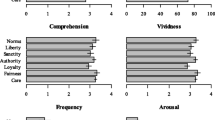Abstract
While objective values need not be intrinsically motivating, need not actually motivate us, they would determine what we ought to pursue and protect. They would provide reasons for actions. Objective values would come in degrees, and more objective value would provide stronger reasons. It follows that, if objective value exists, we ought to maximize it in the world. But virtually no one acts with that goal in mind. Furthermore, objective value would exist independently of our subjective valuings. But we have no way of measuring amounts of such values independently of the ways we value objects. While a subjectivist can account for mistaken values, a fully impersonal viewpoint, from which objective values would appear, seems instead to cause all values to disappear. Nor does the moral point of view, which requires more impartiality than agents usually exhibit, reveal fully objective values. The paper closes with an examination of the most widely endorsed candidates for states having positive and negative objective values: pleasures and pains. It concludes again that, once we adjust for worthiness of the object and desert of the subject for such states, there is no way to measure their supposed objective value.
Similar content being viewed by others
References
Broome J (2004) Weighing lives. Oxford University Press, Oxford, p 74
Carlson E (2006) Incomparability and measurement of value. In: McDaniel (ed) The good, the right, life and death
Feldman F (2004) Pleasure and the good life. Clarendon Press, Oxford
Frankfort H (1988) The importance of what we care about. Cambridge University Press, Cambridge, p 170
Goldman A (1976) The entitlement theory of distributive justice. J Philos 73:823–835
Goldman A (1988a) Empirical knowledge, Ch. 9. University of California, Berkeley
Goldman A (1988b) Moral knowledge, Routledge, London, Ch. 5
Goldman A (2002) Practical rules. Cambridge University Press, Cambridge, pp 79–86
Goldman A (2004) In: Byron M (ed) Satisficing and maximizing. Cambridge University Press, Cambridge
Goldman A (2006) Desire based reasons and reasons for desires. South J Philos 44:469–488
Griffin J (1996) Value judgement. Oxford University Press, Oxford, p 23
Harman G (1977) The nature of morality. Oxford University Press, New York, pp 3–10
Kupperman J (1999) Value... and what follows. Oxford University Press, Oxford, p 89
Lemos N (1994) Intrinsic value. Cambridge University Press, Cambridge, p 67
Mackie JL (1977) Ethics: inventing right and wrong. Penguin, New York, pp 38–42
McLeod O (2006) Adjusting utility for justice. In: McDaniel K et al (ed) The good, the right, life and death. Ashgate, Burlington, VT
Mendola J (1990) Objective value and subjective states. Philos Phenomenol Res 50:695–713 p 700
Nagel T (1986) The view from nowhere. Oxford University Press, Oxford, pp 138–163
Nagel T (1997) The last word. Oxford University Press, Oxford, pp 105–106
Nozick R (1974) Anarchy, state, and Utopia. Basic Books, New York, pp 42–45
Oddie G (2005) Value, reality, and desire. Clarendon Press, Oxford, pp 60–63 218–226
Scheffler S (1982) The rejection of consequentialism. Clarendon Press, Oxford
Sturgeon N (1985) Moral explanations. In: Copp D, Zimmerman D (eds) Morality, reason and truth. Rowman and Allenheld, Totowa, NJ
Williams B (2001) Internal and external reasons, with postscript. In: Millgram E (ed) Varieties of practical reasoning. MIT Press, Cambridge, MA
Zimmerman M (2001) The nature of intrinsic value. Rowman and Littlefield, Landau, MD, p 86
Author information
Authors and Affiliations
Corresponding author
Rights and permissions
About this article
Cite this article
Goldman, A.H. The Case Against Objective Values. Ethic Theory Moral Prac 11, 507–524 (2008). https://doi.org/10.1007/s10677-007-9098-y
Received:
Accepted:
Published:
Issue Date:
DOI: https://doi.org/10.1007/s10677-007-9098-y




